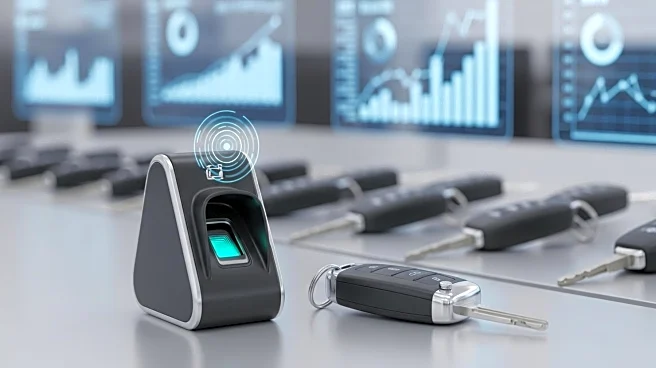What's Happening?
U.S. auto dealerships are increasingly facing challenges related to identity theft, synthetic schemes, and internal sabotage. As light-vehicle sales are projected to rise between 1.3% and 4.4% in August, driven by Labor Day deals and a surge in electric vehicle demand, dealerships are implementing strategies to combat these fraudulent activities. The rise in sales presents both opportunities and risks, as dealerships must navigate the complexities of fraud prevention while capitalizing on increased consumer interest in electric vehicles.
Why It's Important?
The rise in fraudulent activities poses significant risks to dealerships, potentially affecting their financial stability and customer trust. As dealerships experience increased sales, particularly in the electric vehicle segment, they must ensure robust security measures to protect sensitive customer information and prevent financial losses. The ability to effectively combat fraud will be crucial for maintaining consumer confidence and sustaining growth in the competitive automotive market. This situation underscores the importance of cybersecurity and fraud prevention strategies in the retail sector.
What's Next?
Dealerships are expected to continue enhancing their security protocols and fraud detection systems to safeguard against identity theft and other fraudulent schemes. Collaboration with cybersecurity experts and law enforcement agencies may be necessary to address these challenges effectively. As the demand for electric vehicles continues to grow, dealerships will likely focus on optimizing their sales strategies while ensuring customer data protection. The industry may see increased investment in technology solutions designed to prevent fraud and enhance operational efficiency.











